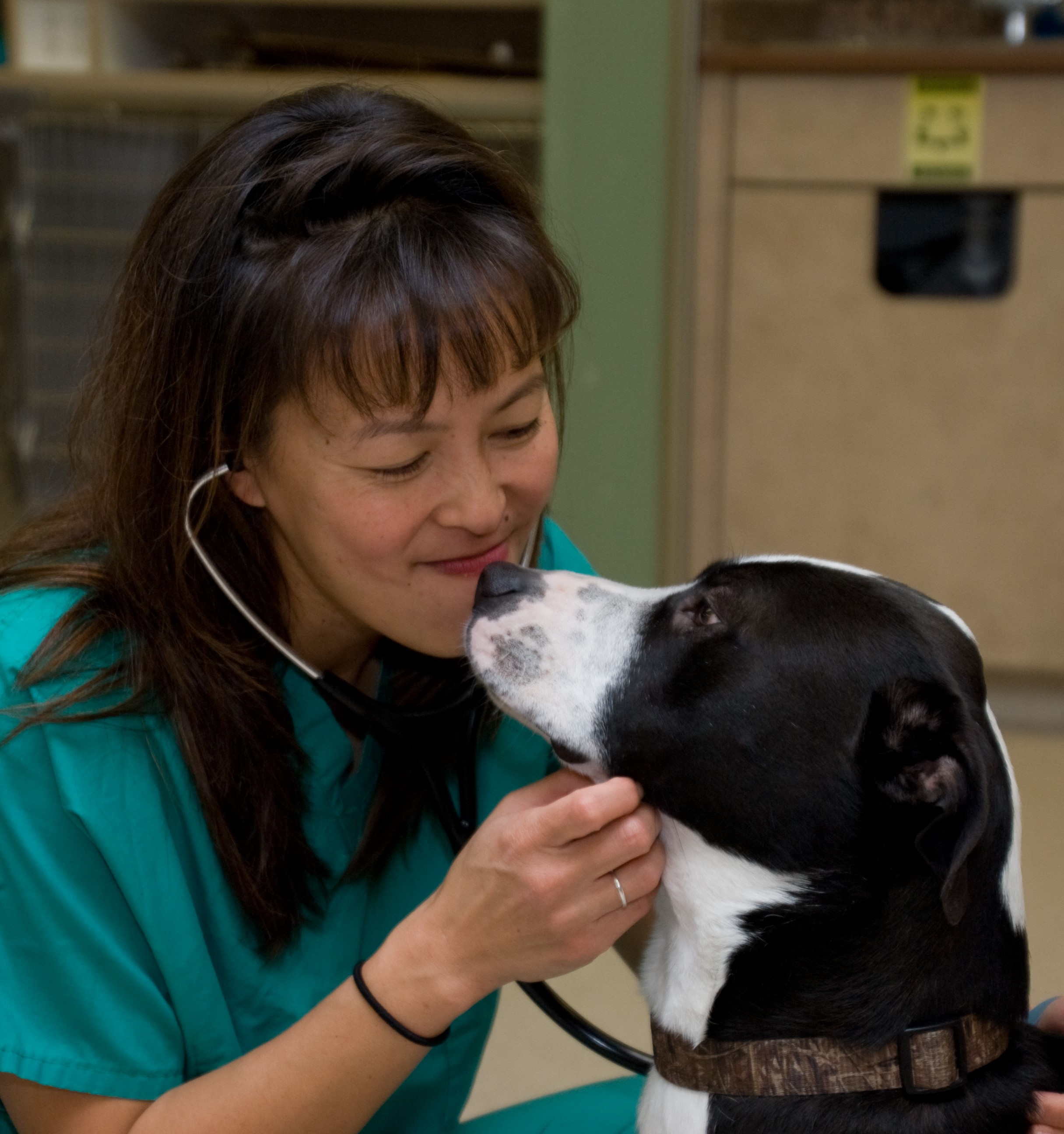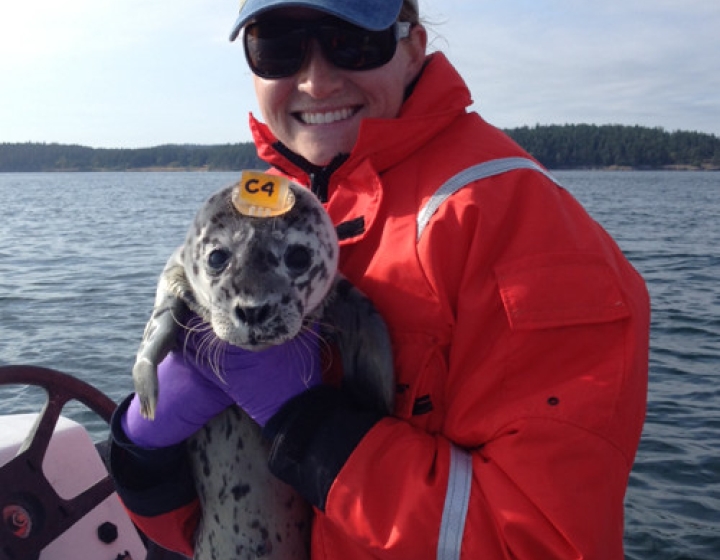Alumni Profile: Justine Lee DVM ’97 launches VETgirl to offer veterinary continuing education
Justine Lee DVM ’97 remembers the stress of studying for her first board examination in emergency critical care. While reviewing her textbooks and journal articles for 12 hours a day, Lee wondered why she couldn’t listen to a recording of the material on her Walkman so she could take a break and go jogging.
But it was 2003, the pre-Ipod era, and there were no smart phones with podcasts or YouTube videos. “I just wished someone could read me a veterinary book chapter or journal article so I could learn while I was running, but there was no technology like that at the time,” Lee says.
Nearly ten years later, Lee faced the same problem when she was studying for her toxicology boards. This time, however, she decided to take veterinary education into the digital age, and in 2013, she created VETgirl, an online service offering veterinary continuing education (CE) through podcasts and webinars that are accepted by RACE — the Registry of Approved Continuing Education.
In just four years, the podcasts produced by VETgirl have been downloaded more than a million times in 170 countries. Thousands of subscribers have also watched webinars on topics such as “Building a Cat-Friendly Veterinary Practice,” “Emergency Management of the Leptospirosis Patient,” and “Top Five Recent Advances in Oncology.”
Offered as a yearly subscription, VETgirl is used primarily by veterinarians and veterinary technicians who want to learn and obtain their CE credits each year. Veterinary students and veterinary military can access the podcasts and webinars for free.
 “Traditionally, veterinarians have obtained their CE through attendance at conferences,” Lee says. “They have to pay to go to the conference, while also paying a relief veterinarian to work at their clinic while they’re at the conference. I wanted to be able to provide a more cost-effective way to allow veterinary professionals to get their CE but do it through the comfort of their home.”
“Traditionally, veterinarians have obtained their CE through attendance at conferences,” Lee says. “They have to pay to go to the conference, while also paying a relief veterinarian to work at their clinic while they’re at the conference. I wanted to be able to provide a more cost-effective way to allow veterinary professionals to get their CE but do it through the comfort of their home.”
Although she invites veterinary specialists and experts to provide many of the lectures, Lee and her partner in the venture, Garret Pachtinger, VMD, DACVECC, a fellow veterinary criticalist who trained with her at the University of Pennsylvania, are heavily involved in producing all the content for the company.
“There’s a lot of sweat equity involved,” says Lee, CEO of VETgirl. “We’re constantly creating new content, and each ten-minute podcast takes several hours of work to create.”
When she isn’t producing new podcasts and webinars, Lee practices emergency critical care two days a week at the Animal Emergency and Referral Center of Minnesota, a specialty hospital in St. Paul. Lee developed a passion for clinical work when she was a student at Cornell and worked in the Community Practice Service clinic that was coordinated by Professor William Hornbuckle, who had a strong influence on her.
“Seeing patients at Cornell’s outpatient and wellness clinic taught me a lot in terms of communicating with clients, developing a strong human-animal bond with your client, and understanding the importance of the physical exam as a veterinarian,” she says.
After graduating, Lee decided to specialize in emergency and critical care when she completed an internship at Angell Memorial Animal Hospital in Boston and a fellowship and residency at the University of Pennsylvania School of Veterinary Medicine. “What I love is the diversity of cases that you see in the emergency room, the ability to save lives, and how to become a jack-of-all-trades in different areas,” she says.
While VETgirl is geared toward veterinary professionals, Lee has focused on educating the public about animal care through two books she wrote — It’s a Cat’s World . . . You just Live in It and It’s a Dog’s World . . . But It’s Your Carpet (Three Rivers Press, 2008).
Lee says she wrote the books because friends and family members were often bombarding her with questions about their cats or dogs. “They were questions that they thought were too silly to ask a veterinarian, but actually were important when it came to the health, well-being, and environmental enrichment for their pet,” she says.
The books are formatted in short question and answers that explore topics such as why dogs roll around in rotting feces, whether a dog’s nose is an indicator of his health, and whether cats can predict death or cancer in humans.
Knowing the answers to such questions, Lee says, can help dog and cat owners better address the health issues afflicting their pets. “I was noticing that medical cases coming  into the emergency room could have been prevented had the owners been educated on what signs to look for in their pets,” Lee says. “So I wanted to write the books to help pet owners become better advocates for themselves and for their pets.”
into the emergency room could have been prevented had the owners been educated on what signs to look for in their pets,” Lee says. “So I wanted to write the books to help pet owners become better advocates for themselves and for their pets.”
From professionals to pet-lovers, Lee clearly has a knack for educating others on animal health.
--by Sherrie Negrea






